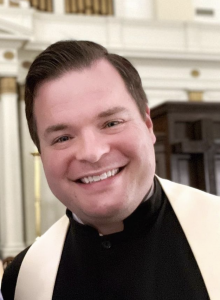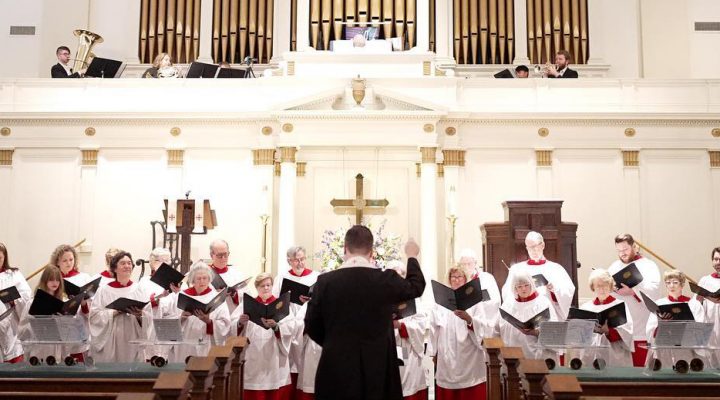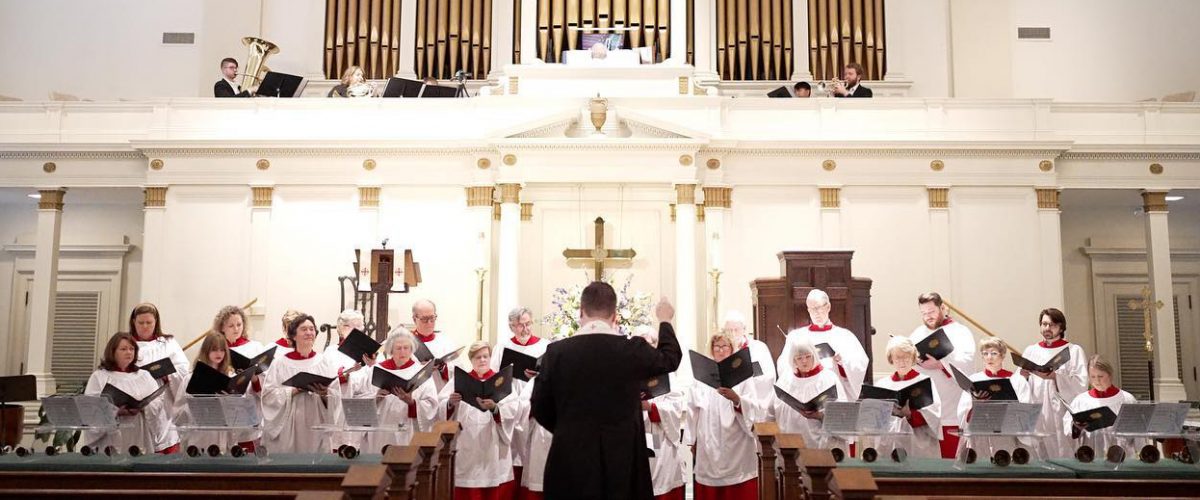It is no secret that The United Methodist Church is in chaos. Churches are voting to leave the denomination left and right, once healthy congregations are now divided, longtime relationships are being damaged, and good people are being hurt.
Several of my UMC friends are looking for new places to worship, and I have invited them to give my church a try. However, some of them are reluctant to do so because they do not want to give up the things they feel are so important to their identity as Methodists.

Justin Addington
Before anyone thinks I am speaking out of turn, I should tell you I am a lifelong United Methodist and have spent more than 20 years of my ministry serving United Methodist congregations. However, in 2019, the year of the disastrous General Conference vote, I stepped away from the denomination. I ultimately found a place serving in a moderate/progressive Baptist church, and I have been overwhelmed by the sense of home I have experienced there.
I will admit I was worried about leaving behind the tenets of Methodism, but the longer I served in my new context, the more I began to develop a rich and personal theology that allowed me to hold on to my Wesleyan convictions, all the while honoring and appreciating the facets of my new denomination.
When I left the UMC, there were five traits of the denomination I knew I would miss and thought I never would be able to find elsewhere. However, I have been pleased and surprised to find all of them within the Baptist church. These traits are connectionalism, diversity of thought, social justice, liturgical worship, and sacramental theology.
In the paragraphs that follow, I will try to expound on each of these in an effort to help those Methodists who may be searching for a new church home as a result of their congregation’s disaffiliation. I truly believe moderate Baptist life can offer exactly what many Methodists are searching for; they just do not know it exists.
Connectionalism
Those who have left the UMC because of disaffiliation are anxious about going to another UMC congregation for fear the battles are not over. Some have found the Episcopal Church to be progressive and welcoming but worry about being a part of another “bishop-led” denomination.
As proud as I always was of the connectional structure of the UMC, it has become one of their biggest problems recently. A hallmark of Baptist polity is that churches are autonomous, with the congregation making all major decisions. Rather than being governed by a Book of Discipline, each church has its own set of rules or bylaws.
Baptist churches also own their property, they are not tied down by apportionment payments, and they are not told who their ministers should be. (I must admit I have found all this to be rather refreshing in the wake of the current UMC landscape.)
“Baptist churches tend to work together for the common good but do not all have to be the same.”
However, most Baptist churches do affiliate with a larger denominational body for missions and networking. My church is affiliated with the Cooperative Baptist Fellowship, the Alliance of Baptists, and the Baptist World Alliance. (We are not affiliated with the Southern Baptist Convention.) We gain support and resources through these organizations but are not governed by them.
Baptist churches tend to work together for the common good but do not all have to be the same.
Diversity of thought
One of the things I always appreciated about the UMC was the vast array of beliefs that existed within the denomination. While that caused difficulties at times, it also has provided rich opportunities for discussion and discernment.
The Baptist church I serve makes a big deal of welcoming all people without regard to “age, gender, race, ethnicity, physical or mental disability, sexual orientation, gender identity, political affiliation, or socio-economic status.”
Our members tend to be united in the core aspects of faith, but individual members fall into different places on certain issues. In the Baptist tradition, there is free interpretation of Scripture. Instead of a larger denominational body deciding what a Scripture text means and who is in and who is out, that is left up to the individual through the guidance of the Holy Spirit and educated clergy.
Again, that means you will have differences of opinion, but you also will have the freedom to continue your spiritual journey at your own pace. This concept has allowed me personally to hold on to my Wesleyan convictions regarding grace and sanctification, even though those ideals are not widely held by most Baptists.
Social justice
Until recent years, one of the trademarks of the UMC was its active stance on issues related to social justice. The UMC always has done good work on gender equality, race relations, gun violence and climate change. In the last few decades, they even made slow progress with LGBTQ inclusion.
“I was delighted to discover my particular congregation was a trailblazer for women’s rights and civil rights in the church.”
However, it seems that all that came to a standstill in 2019. When I made a new home in moderate Baptist life, I was delighted to discover my particular congregation was a trailblazer for women’s rights and civil rights in the church. They began discussions of ordaining women as deacons in the 1930s, the first women deacons were ordained in the 1970s, the first female associate minister was called in the 1980s, and the first female senior pastor was called in 2019. In the 1960s they were one of the first churches in our city to integrate, and just a few years ago, we helped found an interdenominational nonprofit organization that seeks justice for the marginalized citizens of our community.
I also am proud that my congregation has labored to become welcoming and affirming. In 2016 they voted to allow same-sex weddings in the church, and in 2022 they ordained their first openly gay minister. It may please many Methodists to know some of the big decisions that have plagued the UMC already have been dealt with in some moderate Baptist churches.
Liturgical worship
Growing up, I would visit my grandmother’s Southern Baptist church on Sunday evenings. My memories of those services are characterized by Southern Gospel music and evangelistic preaching.
There is nothing wrong with that, but it is not how I choose to worship, nor is it what I was used to as a United Methodist. How pleased I was to find most moderate Baptist churches value strong liturgical worship. As in Methodism, the degree to which each church observes this practice may vary, but liturgical worship can be found.
“Most moderate Baptist churches value strong liturgical worship.”
The church I serve follows the seasons of the Christian Year, we make use of responsive litanies, we employ all the creative arts, it is not uncommon for us to have a procession, our senior minister preaches from the Revised Common Lectionary, our ministers wear robes with liturgical stoles, we use the pipe organ as the primary instrument, and singing is led by the choir.
In our church, you also will find a variety of musical styles, with our primary goal being to provide music that is theologically sound and of the best quality we can offer. Most United Methodists would find such an experience very comfortable and familiar, yet not too rigid or formal.
Sacramental theology
When I left the UMC and joined the Baptist church, one of my biggest struggles was how to deal with the lack of sacramental theology. I have no problem with the Baptist practice of Believer’s Baptism. I actually think it to be biblical and historical.
Most Baptist congregations place a strong emphasis on this practice (I mean, it’s in the name!), and I am lucky to serve a congregation that accepts all forms of baptism from other denominations.
However, I could not get past the observance of the Lord’s Supper being a mere symbolic remembrance. I have always seen the holy meal as a means of grace and have struggled with the casual manner in which the meal is treated in some churches. I knew the Baptist ideal of freedom of thought would allow me to interpret Communion as I saw fit, but I wanted more.
I started doing research and discovered some early Baptists actually retained the sacramental theology of the Church of England. It was not until the move to America that the practice fell away. I also learned there is a strong movement within liturgical Baptist circles to reclaim sacramental theology. (I strongly recommend Amidst Us Our Beloved Stands: Recovering Sacrament in the Baptist Tradition by Michael Haykin.)
My particular congregation has taken significant strides toward making the observance of Communion more substantive — implementing the use of historic liturgies and emphasizing the meaning of the practice.
I believe that leaving the UMC and joining the Baptist church strengthened my faith journey. In moderate Baptist life, I have found all the things that were important to me as a United Methodist. I am able to connect with others, I am able to study and interpret in a way that I see fit, I am able to participate in worship that challenges me yet still feels familiar, and I am able to be my true self, all the while serving as God has called me to do.
I would like to invite all Methodists who feel as if they are wandering in the wilderness of disaffiliation to come and give the Baptist faith a try. I promise you will feel at home in no time.
Justin L. Addington serves as minister of music and acting head of staff at the historic First Baptist Church of Savannah, Ga. He holds a bachelor of arts degree in music education, a master of church music degree in choral conducting and a doctor of theology degree in worship studies. Learn more at www.justinladdington.com.


